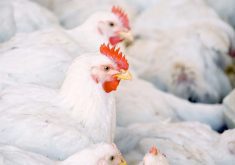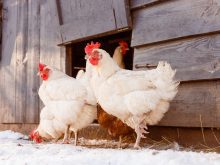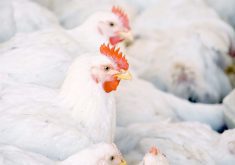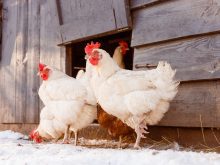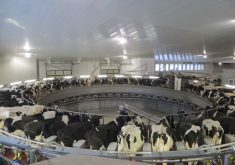The Canadian Food Inspection Agency announced low pathogenicity H5 and H7 avian influenza viruses have been added to the agency’s list of reportable diseases.
This is designed to strengthen its approach to controlling avian influenza in domestic poultry, according to a news release.
Effective immediately, all suspected or confirmed cases of low pathogenicity H5 and H7, as well as all highly pathogenic avian influenza viruses, must be reported to the CFIA.
According to an email from the agency’s media relations department, all avian influenza viruses can be classified into two categories: low and highly pathogenic forms, based on the severity of the illness caused in birds.
Read Also

Canadian Food Inspection Agency extends chronic wasting disease control program consultation deadline
Date extended for consultation period of changes to CWD program
The viruses are divided by subtypes based on two proteins found in the viruses hemagglutinin, or H protein, and neuraminidase, or N protein. There are 16 H types and 9 N types, which create a total of 144 possible combinations.
Most avian influenza viruses are low pathogenicity and typically cause few or no visible signs of illness in infected birds. However, H5 and H7 viruses have the potential to mutate into a highly pathogenic form and kill a large number of domestic poultry.
Animal owners, veterinarians and laboratories are required to immediately report the presence of an animal that is contaminated or suspected of being contaminated with a reportable disease to a CFIA district veterinarian.
The CFIA monitors domestic poultry for viruses under the Canadian Notifiable Avian Influenza Surveillance Program (CanNAISS), a joint initiative of the government and industry. The CFIA also participates in Canada’s Inter-Agency Wild Bird Influenza Survey, which tracks avian influenza viruses circulating in the wild that could be of concern to the poultry industry.
The CFIA works with industry and provincial and territorial government partners to contain and eradicate the disease, and to re-establish Canada’s disease-free status as soon as possible.


